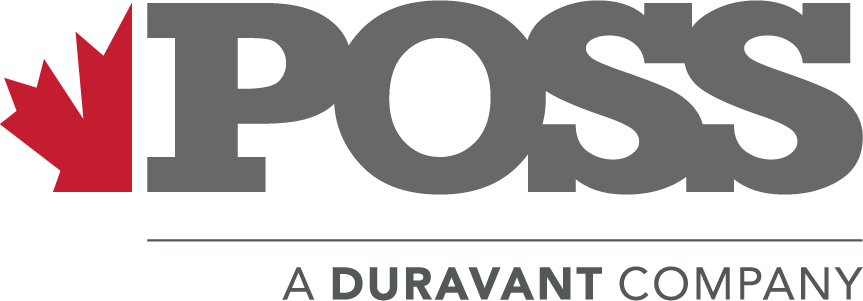The Duravant family of operating companies serve the food processing, packaging and material handling segments.
7 Essential Tips for Choosing the Right Sprayer Pressure Valve for Your Business Needs
In the ever-evolving landscape of agricultural technology, the choice of equipment can have a significant impact on productivity and efficiency. One crucial component that directly affects the performance of spraying systems is the Sprayer Pressure Valve. According to industry reports, the global sprayer market is projected to reach $4.8 billion by 2025, driven by increasing demand for precision farming and efficient pest control. As businesses strive to optimize their operational capabilities, understanding the intricacies of Sprayer Pressure Valves becomes paramount. These valves play a pivotal role in regulating fluid flow and ensuring consistent pressure, which can greatly influence application accuracy and effectiveness.
Selecting the right Sprayer Pressure Valve tailored to specific business needs not only enhances productivity but also contributes to sustainable agricultural practices, making it an essential consideration for anyone in the industry.
Key Factors to Consider When Selecting a Sprayer Pressure Valve for Optimal Efficiency
When selecting a sprayer pressure valve for your business needs, optimizing efficiency is paramount. One crucial factor to consider is the valve's compatibility with your sprayer system. Ensure that the pressure valve you choose can handle the specific flow rates and pressure levels required for your operations. Mismatched components can lead to inefficiencies, wasting both time and resources. Additionally, look for valves that feature adjustable pressure settings, allowing for precise control across various applications, which can enhance overall productivity.
Another important aspect is the material construction of the pressure valve. Depending on the chemicals or liquids being sprayed, certain materials may not withstand corrosive substances, leading to premature failure. Opting for high-quality, durable materials not only improves longevity but also ensures consistent performance under varying conditions. Furthermore, consider the ease of maintenance; valves that are designed for simple servicing will keep downtime to a minimum, allowing your business to operate efficiently. By focusing on these key factors, you can select a sprayer pressure valve that will meet your operational demands effectively.
Understanding Industry Standards: PSI Ratings and Their Impact on Spray Quality
When selecting the right sprayer pressure valve for your business needs, understanding PSI ratings is crucial to ensuring optimal spray quality. PSI, or pounds per square inch, directly affects the effectiveness and precision of your spraying tasks. Reports indicate that a PSI rating of 1500-3000 is commonly recommended for professional-grade applications. This range ensures a balance between adequate pressure to cover larger areas while minimizing the risk of damaging surfaces, especially when working with sensitive materials.
Moreover, recent industry analyses have highlighted the importance of surface cleaner attachments for pressure washers. These attachments enhance the performance of the sprayers by providing an even and consistent spray pattern, which is essential for achieving a high-quality finish. Choosing a sprayer valve that complements these attachments can significantly improve efficiency and spray coverage. As noted in the latest evaluations, opting for tools that can endure heavy-duty use will not only meet your immediate needs but also offer long-term reliability, ensuring your business can tackle diverse projects with confidence.
The Importance of Material Compatibility: Avoiding Corrosion and Ensuring Longevity
When selecting a sprayer pressure valve for your business, material compatibility is crucial to avoid corrosion and ensure longevity. The enduring nature of your equipment often hinges on its resilience to harsh environmental conditions. Corrosion, particularly in the context of wastewater systems, can lead to significant operational costs and safety concerns. Opting for materials that resist common corrosive agents, like hydrogen sulfide, will enhance the durability of your valves and minimize maintenance needs.
In addition to material selection, consider innovative coatings and surface modifications. These technological advancements provide additional protection against permeation and environmental wear, which are especially important in applications exposed to corrosive substances. Utilizing valves with special coatings can extend their lifespan and improve operational efficiency, making them a sound investment for your business. Implementing these expert tips will not only safeguard your assets but will also contribute to a sustainable approach in maintaining the integrity of your piping systems.
Evaluating Flow Rates: How to Choose the Right Size for Your Spraying Applications
When selecting a sprayer pressure valve, evaluating flow rates is crucial for optimizing your spraying applications. Flow rate, measured in gallons per minute (GPM) or liters per minute (LPM), directly influences the effectiveness and efficiency of your spraying tasks. A valve that accommodates the appropriate flow rate ensures that your chemicals or solutions are delivered uniformly and efficiently across the desired area. Too low of a flow rate can lead to inadequate application, while too high can cause overspray and waste, jeopardizing both your resources and results.
Choosing the right size for your sprayer pressure valve requires consideration of several factors, including the type of spraying equipment you use, the dimensions of the area being treated, and the specific materials you're applying. Get familiar with the recommended flow rates for each application to match them with the valve specifications. By aligning the valve’s capabilities with the operational needs of your equipment and the requirements of your projects, you'll achieve a more precise and effective spraying operation, enhancing productivity and minimizing your environmental footprint.
Maximizing Cost-Effectiveness: Balancing Quality and Budget in Pressure Valve Selection
When selecting a sprayer pressure valve, achieving the right balance between quality and budget is paramount for maximizing cost-effectiveness. According to a recent industry report by MarketsandMarkets, the global sprayer market is expected to reach $8.4 billion by 2025, with a significant focus on advanced sprayer technology and efficient components. This underscores the necessity of investing in high-quality pressure valves that offer durability and reliable performance over time. Cheaper alternatives may seem appealing upfront, but the long-term costs associated with frequent replacements and potential downtime can quickly surpass initial savings.
Furthermore, considering the operational aspects of your business is crucial. The correct pressure valve can enhance the efficiency of your sprayer system, leading to improved application rates and reduced waste of materials. A report by Research and Markets indicates that a well-chosen pressure valve can reduce operational costs by up to 20% through optimized performance. This not only contributes to a healthier bottom line but also supports sustainable practices by minimizing resource expenditure. Therefore, investing in quality pressure valves aligned with your specific business needs will yield significant returns, reinforcing the importance of balancing quality with budgetary constraints.
7 Essential Tips for Choosing the Right Sprayer Pressure Valve for Your Business Needs
| Tip | Description | Cost-Effectiveness | Quality Consideration |
|---|---|---|---|
| 1. Assess Your Needs | Determine the specific applications and flow rates required. | Understand how features affect pricing. | Choose quality features that align with your application needs. |
| 2. Research Different Types | Know the various types of sprayer pressure valves available. | Explore cost differences between types. | Identify the best quality types for longevity. |
| 3. Evaluate Material Quality | Inspect materials used in the valves for durability. | Higher quality materials may save costs in the long run. | Prioritize materials that withstand your working environment. |
| 4. Consider Maintenance Needs | Assess how easy it is to maintain or replace parts. | Lower maintenance frequency saves costs. | Choose models known for ease of maintenance. |
| 5. Compare Prices | Get quotes from multiple suppliers to find competitive pricing. | Ensure prices reflect the quality offered. | Don't compromise on important quality aspects for lower price. |
| 6. Read Reviews and Feedback | Look for customer reviews or case studies for insights. | Positive feedback can indicate good value. | Quality performance backed by users' experiences. |
| 7. Factory Support and Warranty | Check if the manufacturer offers reliable support and warranty. | Good support decreases long-term costs. | A strong warranty indicates quality assurance. |











